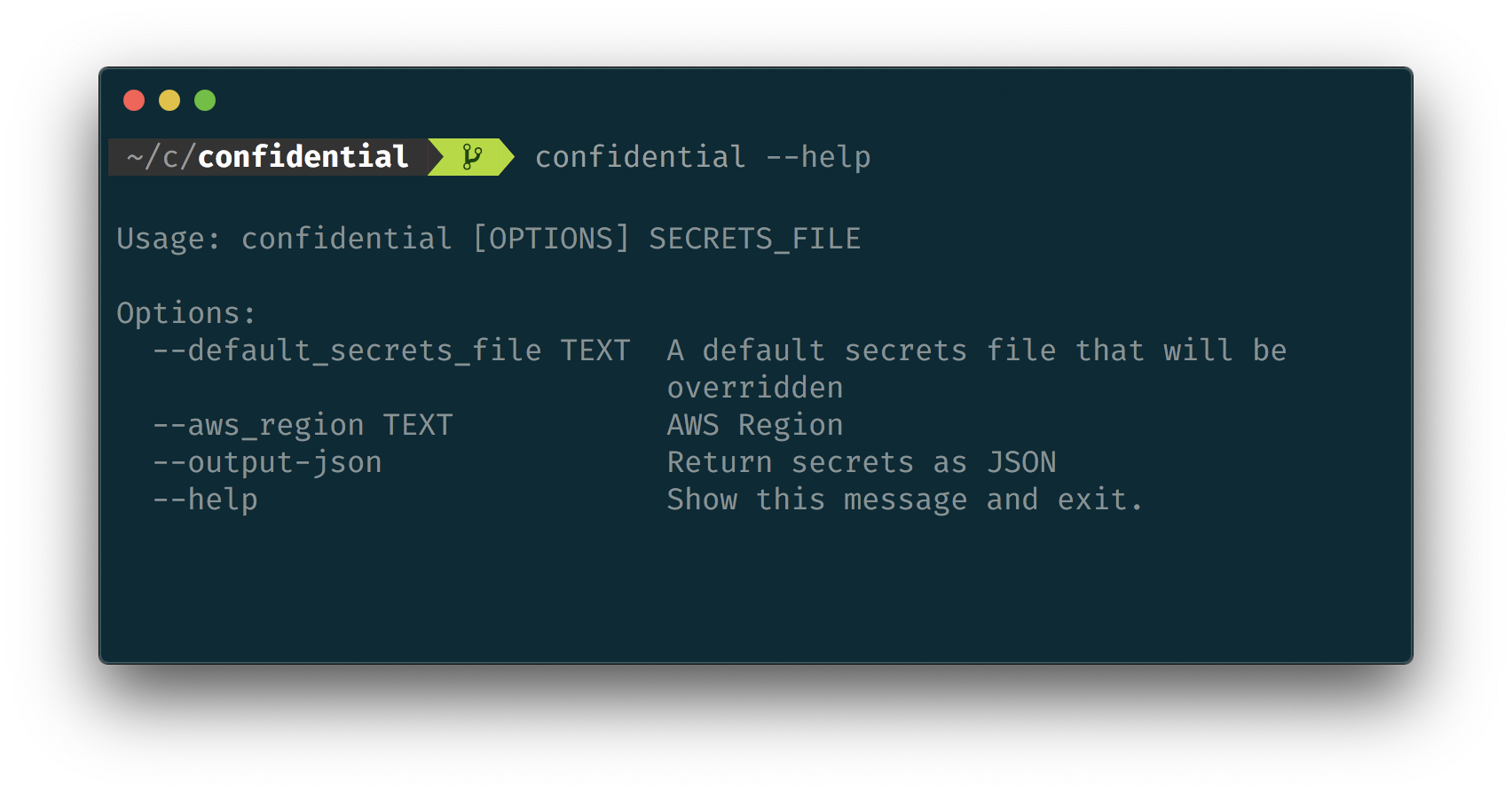If the SECRETS_FILE is not available it'll drop an error and trace:
root@asdadsad:/opt/app# export SECRETS_FILE=".secrets/stage.json"
root@asdadsad:/opt/app# python manage.py shell
Traceback (most recent call last):
File "manage.py", line 22, in <module>
execute_from_command_line(sys.argv)
File "/usr/local/lib/python3.6/site-packages/django/core/management/__init__.py", line 381, in execute_from_command_line
utility.execute()
File "/usr/local/lib/python3.6/site-packages/django/core/management/__init__.py", line 325, in execute
settings.INSTALLED_APPS
File "/usr/local/lib/python3.6/site-packages/django/conf/__init__.py", line 57, in __getattr__
self._setup(name)
File "/usr/local/lib/python3.6/site-packages/django/conf/__init__.py", line 44, in _setup
self._wrapped = Settings(settings_module)
File "/usr/local/lib/python3.6/site-packages/django/conf/__init__.py", line 107, in __init__
mod = importlib.import_module(self.SETTINGS_MODULE)
File "/usr/local/lib/python3.6/importlib/__init__.py", line 126, in import_module
return _bootstrap._gcd_import(name[level:], package, level)
File "<frozen importlib._bootstrap>", line 994, in _gcd_import
File "<frozen importlib._bootstrap>", line 971, in _find_and_load
File "<frozen importlib._bootstrap>", line 941, in _find_and_load_unlocked
File "<frozen importlib._bootstrap>", line 219, in _call_with_frames_removed
File "<frozen importlib._bootstrap>", line 994, in _gcd_import
File "<frozen importlib._bootstrap>", line 971, in _find_and_load
File "<frozen importlib._bootstrap>", line 955, in _find_and_load_unlocked
File "<frozen importlib._bootstrap>", line 665, in _load_unlocked
File "<frozen importlib._bootstrap_external>", line 678, in exec_module
File "<frozen importlib._bootstrap>", line 219, in _call_with_frames_removed
File "/opt/app/project/__init__.py", line 8, in <module>
if settings.DOGSTATSD_ENABLED:
File "/usr/local/lib/python3.6/site-packages/django/conf/__init__.py", line 57, in __getattr__
self._setup(name)
File "/usr/local/lib/python3.6/site-packages/django/conf/__init__.py", line 44, in _setup
self._wrapped = Settings(settings_module)
File "/usr/local/lib/python3.6/site-packages/django/conf/__init__.py", line 107, in __init__
mod = importlib.import_module(self.SETTINGS_MODULE)
File "/usr/local/lib/python3.6/importlib/__init__.py", line 126, in import_module
return _bootstrap._gcd_import(name[level:], package, level)
File "<frozen importlib._bootstrap>", line 994, in _gcd_import
File "<frozen importlib._bootstrap>", line 971, in _find_and_load
File "<frozen importlib._bootstrap>", line 955, in _find_and_load_unlocked
File "<frozen importlib._bootstrap>", line 665, in _load_unlocked
File "<frozen importlib._bootstrap_external>", line 678, in exec_module
File "<frozen importlib._bootstrap>", line 219, in _call_with_frames_removed
File "/opt/app/project/settings.py", line 27, in <module>
region_name=AWS_REGION,
File "/usr/local/lib/python3.6/site-packages/confidential/secrets_manager.py", line 23, in __init__
secrets = self.parse_secrets_file(secrets_file) if secrets_file else {}
File "/usr/local/lib/python3.6/site-packages/confidential/secrets_manager.py", line 85, in parse_secrets_file
config[key] = json.loads(decrypted_string)
File "/usr/local/lib/python3.6/json/__init__.py", line 348, in loads
'not {!r}'.format(s.__class__.__name__))
TypeError: the JSON object must be str, bytes or bytearray, not 'NoneType'

